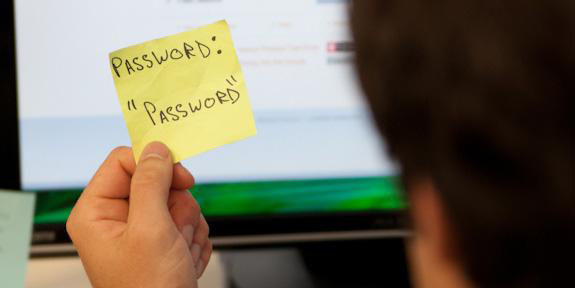

Should teenagers share passwords? Should anyone share passwords? The answer is simple - NO. It's sacred information like your weight or bank account. It remains with you.
How often do friendships and relationships fail, especially in teen years? It's always best to have a backup plan and your own email account with your password, just in case things don't work out. Always be prepared and try not to share your password with anyone.

Young, in Love and Sharing Everything, Including a Password
Young couples have long signaled their devotion to each other by various means - the gift of a letterman jacket, or an exchange of class rings or ID bracelets. Best friends share locker combinations.
The digital era has given rise to a more intimate custom. It has become fashionable for young people to express their affection for each other by sharing their passwords to e-mail, Facebook and other accounts. Boyfriends and girlfriends sometimes even create identical passwords, and let each other read their private e-mails and texts.
They say they know such digital entanglements are risky, because a souring relationship can lead to people using online secrets against each other. But that, they say, is part of what makes the symbolism of the shared password so powerful.
It doesn’t always end so well, of course. Changing a password is simple, but students, counselors and parents say that damage is often done before a password is changed, or that the sharing of online lives can be the reason a relationship falters.
The stories of fallout include a spurned boyfriend in junior high who tries to humiliate his ex-girlfriend by spreading her e-mail secrets; tensions between significant others over scouring each other’s private messages for clues of disloyalty or infidelity; or grabbing a cellphone from a former best friend, unlocking it with a password and sending threatening texts to someone else.
Rosalind Wiseman, who studies how teenagers use technology and is author of “Queen Bees and Wannabes,” a book for parents about helping girls survive adolescence, said the sharing of passwords, and the pressure to do so, was somewhat similar to sex.
Sharing passwords, she noted, feels forbidden because it is generally discouraged by adults and involves vulnerability. And there is pressure in many teenage relationships to share passwords, just as there is to have sex.
In a 2011 telephone survey, the Pew Internet and American Life Project found that 30 percent of teenagers who were regularly online had shared a password with a friend, boyfriend or girlfriend. The survey, of 770 teenagers aged 12 to 17, found that girls were almost twice as likely as boys to share. And in more than two dozen interviews, parents, students and counselors said that the practice had become widespread.
In a recent column on the tech-news Web site Gizmodo, Sam Biddle called password sharing a linchpin of intimacy in the 21st century, and offered advice to couples and friends on how to avoid missteps.
Students say there are reasons, beyond a show of trust, to swap online keys. For instance, several college students said they regularly shared Facebook passwords - not to snoop on or monitor each other, but to force themselves to study for finals. A student would give her password to a friend to change it - and not disclose the new password - thereby temporarily locking out the Facebook account holder and taking away a big distraction to studying.